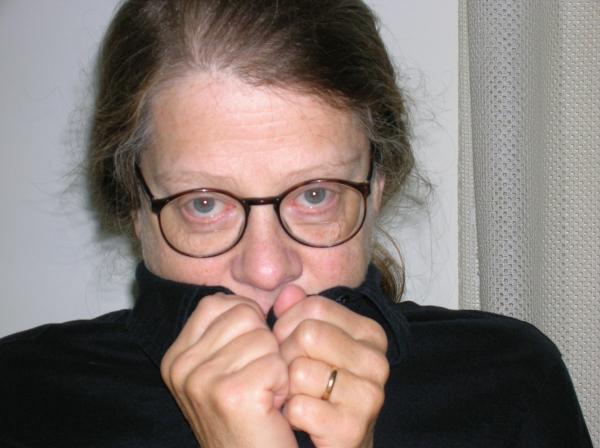A Q&A with Marianne Boruch and Will Dunlap
Georgia Poetry Circuit reading tonight at Ciné

Marianne Boruch
Poet Marianne Boruch and her son, Will Dunlap, a writer and graduate student at UGA, will read from their respective works at Ciné Friday as part of the Georgia Poetry Circuit. Flagpole spoke with them separately before the event.
Flagpole: Can you tell me a little bit about what you are working on these days?
Marianne Boruch: I just finished a book that was inspired in part by the extraordinary opportunity I had at Purdue University where I teach, when I was awarded a "Faculty Fellowship in a Second Discipline" and had the chance to sit in and participate in a life drawing class, as well as the Gross Human Anatomy class in the Indiana University Medical School on my campus. This lasted a semester, and I have been writing the poems seeded by that experience for a couple of years, until quite recently. The finished collection, Cadaver, Speak, will be published by Copper Canyon Press early next year. I should add that the long sequence that I wrote first (and which is now the ending section of the book) was published in The Georgia Review—all 32 poem sections of it. And I'm still wildly grateful for that. New poems are starting to come though. And as usual, they are unnerving me.
Will Dunlap: I'm lucky to be [at UGA] as a grad student in English and Creative Writing, basically a PhD in English with a slant towards (in my case) fiction writing. Before this, I studied fiction and screenwriting at the Michener Center for Writers at the University of Texas where I received my MFA. There I started an historical novel set in the 1850s which I've finally managed to complete after five plus years of work. I've also written a few stories, an opera libretto and, way back in college, tried my hand at another historical novel, a western, which I never quite got off the ground.
FP: Do you usually share your work with each other, or see influences from one another?
MB: Will has been a wonderful reader of my work, the poems and essays, and in particular, his good eye on early drafts of my memoir, The Glimpse Traveler, my one stab at narrative prose. He's allowed me to read some of his fiction now and then, but certainly not everything.
WD: I write historical fiction. My mother is a poet and, so far as I know, stays pretty far away from from the 19th century. So I can't call her work an influence on my own stuff. But am I influenced by her work ethic and her devotion to craft? Absolutely. She's a real model for me in that regard. And I do show her my work from time to time. For years now, she and my father have been my foremost readers.
FP: What have you learned about writing from your mother?
WD: That writers are basically plumbers or tinkerers. That you have to put in the time pushing words around and it helps to be disciplined. And that you need to love it, or at least really like it—the writing part of it, I mean. Not the talking-about-writing or sending-stuff-to-magazines parts of it—wanting publication. What my mother tells her students is you have to treat that part of the process like a hobby. Seems like good advice to me.
FP: Do you see similarities between your work and Will's? Did you encourage him to write?
MB: Well, I can't really speak about my own stuff, but I can say most enthusiastically (and probably suspiciously, given that I'm his old ma) that Will's fiction has great life and depth, close and credible observation; has edge and heart and surprise. What can I say? I forget I'm reading. He puts me there. I hope my work has similar qualities. Of course, I encouraged him, though until his early 20s, he was smitten with the cello. I loved that, too. His father especially read to him endlessly when he was a small child and way into grade school. He is, as a result, a very keen listener, I think, and has a richly physical sense of the way words and sentences create a world, make for sound and silence. That's a rare gift.
FP: What of your work will you be reading at Ciné?
WD: I'll be reading from the recently completed manuscript which I'm calling The Salvation of Doctor MacLeod. It's set in a small Indiana town and concerns a doctor's apprentice who, early in the story, saves a young woman's life. The rest of the book traces his obsession with the woman—she was his childhood friend but is now married—and his certainty that God intends for them to be together.
FP: Can you describe how your poetry has changed over time?
MB: Well, poems are mysterious creatures and they still bewilder me. There's the surprise of the first draft, but then the real negotiation starts, between what I think I have and what really is there waiting. And sure, this is always changing. That's the fascination of it.
Boruch and Dunlap read Friday, Feb. 1 at Ciné at 7 p.m.









comments